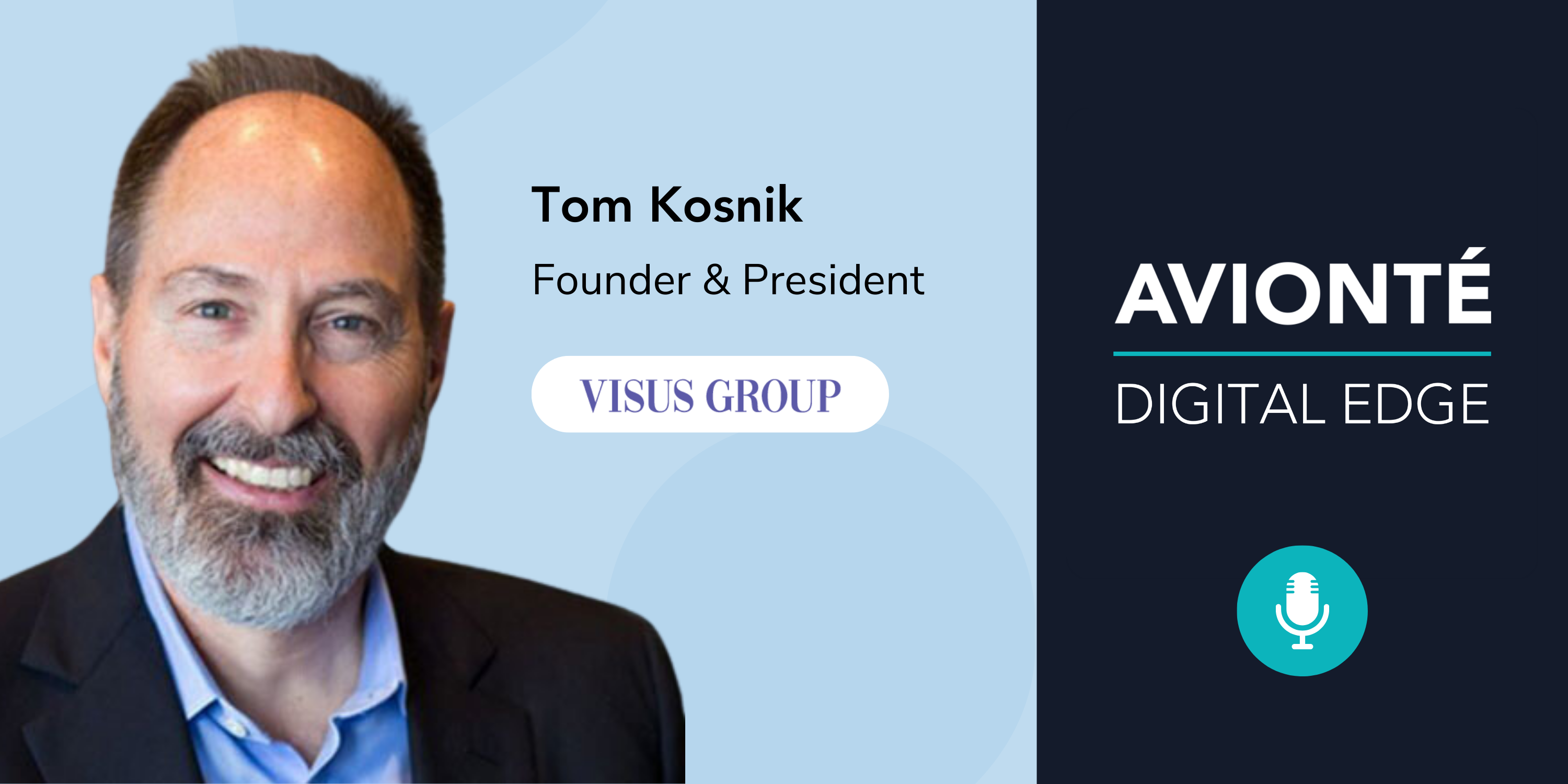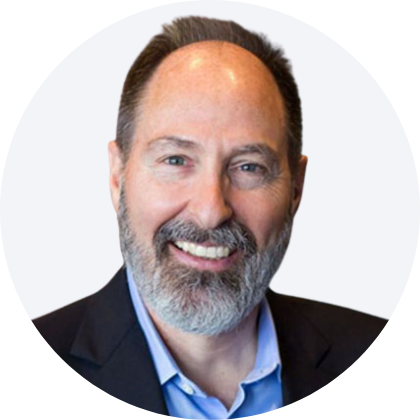
Dr. Amy Lui Abel, Author and Former LHH Global Talent Partner, on the True Impact of Artificial Intelligence in Talent Selection
Delve into the world of AI and its implications for the staffing industry.
A recent study conducted by Resume Builder reveals that a substantial 74% of respondents believe that working with Gen Z, the latest generation to enter the workforce, poses greater challenges compared to other generational counterparts. But, in the staffing industry, where a big part of the new workforce is made up of Gen Z, success is tied to how well you can connect with this next generation of workers. You need to know how they like to work, communicate, and what they want from their jobs.
What strategies can staffing leaders use to effectively engage with this new generation of workers? And how can we provide them with the necessary support to ensure their success as the upcoming leaders in this field? To help shed light on these questions, Christopher Ryan, Chief Marketing & Strategy Officer at Avionté, sits down with Tom Kosnik, President of Visus Group, LLC.
In addition to his responsibilities at Visus, Tom has spent over two decades facilitating a president’s roundtable with staffing CEOs and agency owners to discuss the business challenges of the day, which offers him an intimate understanding of what these leaders are thinking about, as well as an understanding of the relationship between leadership and business performance.

This is a partial transcript of the full conversation. Listen to the podcast episode for the complete discussion.
Chris Ryan: Tom, why are business leaders so obsessed with Gen Z and what are you hearing in your roundtable discussions?
Tom Kosnik: What I hear is that Gen Zs don’t have a work ethic. They really don’t want a job. They don’t want to get on the phone. And so, for us, when we’re talking about doing a lot of relationship building, you got to spend time on the phone.
The other big thing I hear is that the managers have got to touch the Gen Zs a lot. They got to cuddle them; they got to mentor them; they got to handhold them; they got to pat them on the back. And the managers are thinking, “This is too much work.” So, that’s what I’m hearing at our round tables.
Chris Ryan: As I’m listening to this, I have a little bit of mixed feelings. Sometimes I reflect on what I was like when I joined the workforce in the early 1980s. And when I showed up for work, there were people who thought that perhaps baby boomers were a little bit radicalized. And I was showing up every day in a three-piece suit and wearing a tie. But now we’re trash talking a new generation.
So, as a business leader, is the issue that Gen Z is really difficult, or is this just more trash-talking of the newest generation? What’s your perspective on this?
Tom Kosnik: Yeah, we’ve complained about every new generation that’s come into the workforce after the baby boomers. But my feeling is that we do have a leadership challenge in the staffing industry. The industry is slow to change. A lot of times I feel like we have to drag the staffing industry through change kicking and screaming. But I believe that we do have a leadership gap in the staffing industry.
It’s this old thinking of what worked for us is going to work for them. And, in reality, the whole world has shifted. So, I think that there’s a leadership challenge in the staffing industry, and there’s a wonderful opportunity for us to work with this new generation. I do have clients that are wildly succeeding with the Gen Z and millennial workforce.
Chris Ryan: And so, I have to ask you why? What are the firms that are succeeding right now doing differently than everybody else?
Tom Kosnik: I’ve got a great story for you: In the same round table, there were two senior leaders from companies around the same revenue size. One leader was always whining and complaining about millennials. But, the other senior leader would come to the round table and say, “We’re trying to figure out how to give the company to millennials. We’re trying to figure out how to let them determine what’s the best fulfillment process, sales process, and let them drive the growth of the business.”
And, the guy that was always complaining, his business stagnated. But the guy that’s trying to give to the millennials, his business, it’s sizable now. So, what are they doing right? It’s really moving from a traditional concept of management to a coach.
So, they’re not managing how you and I learned how to manage. They’re developing their managers to be coaches to their teams – not traditional, metric-driven managers in the way that you and I experienced when we were growing up in the space.
Chris Ryan: It’s interesting because staffing is a metrics-driven business. But it sounds to me like the companies who are doing well have been very intentional about career development and around the style with which they’re teaching people in their organizations.
Tom Kosnik: There’s skill development. How do I make a better call? How do I make a presentation? How do I negotiate better? How do I use the database better? That’s all skill development.
Then there’s human development. How do I become a better communicator? How do I resolve conflict? How do I think strategically with a client?
But when you think about performance metrics, the approach is: “You were supposed to make a hundred phone calls last week, and you only made 80. What are you going to do about that? You only have five submittals. Why?”
Versus: “You want to make $150,000?” “Well, yeah, sure I’d love to boss.” “Well here, let me show you how to do that. You need to make x number of connections with hiring managers. You need to make x number of face-to-face encounters, whether that’s Zoom or lunch.” And then off they go.
And then those one-on-one sessions that the manager has with the employee. One of the best managers in the industry said to me, “When I sit down with my employees, I say to them, ‘This is your meeting. Where can we help you? Where are we failing to help you succeed in getting 35 consultants on billing or 3 million in revenue rolling?’”
Chris Ryan: So, when we think about what makes an effective leader, it’s not just tools and techniques. It’s a mindset.
Tom Kosnik: Yes. But the big challenge is that we all have assumptions about the economy, about the government, about clients, about temporaries, about internal employees, about the hiring process, about the sales process, the recruiting process, the procurement process. We all have these assumptions in the back of our heads on how all this stuff works.
The challenge is that we never get those unspoken assumptions out on the table with a collaborative group of people that can actually challenge the way that we’re assuming how this all works. Why do leaders assume that a technique that worked in a previous job, that same technique is going to work in this environment, in this culture, and with these clients?
Chris Ryan: So, Tom, what leadership practices are universal? There are certain assumptions about leadership that presumably don’t change over time, but there are other things that do. And how do you know the difference?
Tom Kosnik: That is a fantastic question, and anybody listening who’s a leader or a manager should really sit down and reflect.
So, personality characteristic traits, whether I’m an extrovert, an introvert; whether I conform to guidelines and rules, or I don’t conform to guidelines and rules; whether I like a collaborative team environment, whether I work on my own. It doesn’t matter if I’m a baby boomer, Gen X, a millennial, a Gen Z, those traits have not changed because they are built into the brain.
We know what makes a good salesperson: somebody who’s got a good, healthy sense of ego strength, can stay in charge of a verbal transaction, doesn’t overthink things, and has got lower conformance. It doesn’t matter if you’re 75 years old or if you’re 20 years old, those hardcore personal characteristic traits have not changed.
The things that have changed are the work preferences. So, I prefer to work in a semi-remote environment. I prefer to work in a highly collaborative environment. I prefer to work in a very decisive, decision-making organization. Those work preferences change, and companies that really are knocking it out of the park, they culturally understand the work preferences within their organization that are a good match for candidates coming in.
Chris Ryan: So, presumably, there’s a certain kind of staffing firm with a very collaborative culture and other staffing firms with a command-and-control culture, and you should look for the talent that fits that culture.
So, instead of generalizing about Gen Z, we would do a better job asking what kind of person fits best in our culture and then, as we’re looking at candidates, ask ourselves: “Who is this person in front of us and do they fit in in the appropriate way? Then, it’s no longer about the generation; it’s about the individual.
Tom Kosnik: Yes, that’s exactly right.
Chris Ryan: So, in prior discussions, you often bring up the topic of contingent management style. What is contingent management style and why is it important?
Tom Kosnik: So, sometimes a manager or a leader is in a situation where they just have got to make a decision and move on. There are other times where they have to be collaborative. And they know what style of leadership they need to apply in that specific situation. It’s contingent upon the scenario, the situation, the outcome that the organization or the leaders is seeking to achieve.
Chris Ryan: So, a good leader is decisive when they need to be, and they’ll collaborate when they need to, and they’ll know what is appropriate in each case. How do you teach that to emerging leaders? Is there an art to that?
Tom Kosnik: First of all, just getting people educated on some of the basic management techniques. But then, we learn from each other. So, getting your managers connected with other managers – and they don’t even need to be other managers in the staffing industry. There’s meetup groups and networking groups that managers and young leaders can connect with other young leaders.
The truth is that, if I’m a manager and I feel like I’m not performing at my best or I feel like I’m failing, I’m not going to go to my boss. So, you get them in a group or an environment where they can safely be vulnerable and say: “Hey, I feel like I’m failing.” “Well, tell us more about that. Why do you feel like you’re failing? Have you tried this?”
Chris Ryan: To me, this is very interesting because, growing up, I can tell you that managing or leading other people in the 80s or 90s, to display weakness publicly was never a good thing. But, what I hear you saying is that there are ways of creating a safe space where younger leaders can actually begin to develop their management style and leadership capabilities.
Tom Kosnik: You got it! We’ve learned over the last 20 years or so that if managers cannot be vulnerable in front of themselves, they’re never going to grow, they’re never going to develop. They’re going to continue to do the same thing that they’ve always done.
But better bet the groups that are knocking it out of the park with Gen Zs, that’s part of their culture. You don’t come here to hide or to do the same job day-in and day-out. No, you’re here to develop as a human being.
There are so many great things that staffing companies could be doing!
Chris Ryan: So, let’s talk about that a little bit. What are the important things that I can be doing to develop my personal skills, and then what are the things that I can be doing to expand the emotional quotient of my organization?
Tom Kosnik: So, it all starts at the top. You start off with a compelling, engaging mission. What difference in the lives of people do we make? And then it’s a lot about culture development. How do we create a culture of engagement, collaboration, people being heard.
It really is a paradigm shift in terms of the old management style and a new management style, because what we do is we truly understand, as people are coming into the door, where are their greatest attributes? Where are their greatest strengths? And then we make sure that 70, 75, 80 percent of what they’re doing on a day-to-day basis is focused on those things where their strengths lie. And if somebody starts to drift into doing things that are not in their core competencies of strengths, then it’s our job to get them back on track.
We used to think that satisfaction drove productivity. If I have enough massage therapists on Friday and I feed everybody five days out of the week and have a foosball table and a ping pong table, and I make it a fun place to work, that people are going to be satisfied and they’re going to produce.
It’s exactly the opposite. It’s what do I do to increase productivity? Because if somebody is delivering to the mission of the organization, that is what drives productivity.
Chris Ryan: So, you really want your workers to feel like winners.
Tom Kosnik: Yes, and how do you make them feel like winners? First off, you got to hire the right people. You’ve got a great onboarding system. You’ve got some kind of a mentoring program. You’ve got feedback loops and you do something with the feedback. Town halls messages from the president. Shoutouts where you’re congratulating somebody for doing something over and beyond.
Again, the companies that are knocking it out of the park with Gen Zs, these are the things that they’re focused on. They’re not focused on how do I hire the next rainmaker? They’re thinking how I can build a great culture where employees will run through a wall for us.

Tom Kosnik
Founder and President, Visus Group
Tom Kosnik, founder and president of the Visus Group is one of the staffing industry’s leading experts in organizational design, profitability improvement, and work culture transformation. Tom has coached and consulted hundreds of staffing executives throughout North America using his empirical-based “Organizational Development Business Model” (ODBM). Most notably, Tom is the founder of the Presidents RoundTable, a nationwide leadership forum program strategically aimed at helping staffing professionals collaborate and solve industry challenges.

Christopher Ryan
Chief Strategy & Marketing Officer at Avionté
Christopher Ryan leads the Strategy and Marketing functions for Avionté. He brings more than three decades of consulting, thought leadership, and corporate experience in Human Capital Management.
Modern technology has revolutionized the way we live, work, and play. It’s also what’s fueling the gig economy which has dramatically changed employment practices. So, what does that mean for staffing and contingent work? In our Avionté Digital Edge podcast series, we will speak directly with industry experts to explore topics and trends related to the digital transformation of staffing and temporary employment in the US workforce.